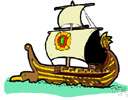North Germanic
n.
A subdivision of the Germanic languages that includes Norwegian, Icelandic, Swedish, Danish, and Faroese. Also called Norse, Scandinavian.
American Heritage® Dictionary of the English Language, Fifth Edition. Copyright © 2016 by Houghton Mifflin Harcourt Publishing Company. Published by Houghton Mifflin Harcourt Publishing Company. All rights reserved.
North Germanic
n
(Languages) a subbranch of the Germanic languages that consists of Danish, Norwegian, Swedish, Icelandic, and their associated dialects. See also Old Norse
Collins English Dictionary – Complete and Unabridged, 12th Edition 2014 © HarperCollins Publishers 1991, 1994, 1998, 2000, 2003, 2006, 2007, 2009, 2011, 2014
North′ German′ic
n.
the branch of Germanic that includes Old Norse, Danish, Swedish, Norwegian, Faeroese, and Icelandic.
Random House Kernerman Webster's College Dictionary, © 2010 K Dictionaries Ltd. Copyright 2005, 1997, 1991 by Random House, Inc. All rights reserved.
ThesaurusAntonymsRelated WordsSynonymsLegend:
| Noun | 1. |  North Germanic - the northern family of Germanic languages that are spoken in Scandinavia and Iceland North Germanic - the northern family of Germanic languages that are spoken in Scandinavia and IcelandGermanic, Germanic language - a branch of the Indo-European family of languages; members that are spoken currently fall into two major groups: Scandinavian and West Germanic Danish - a Scandinavian language that is the official language of Denmark Icelandic - a Scandinavian language that is the official language of Iceland Norwegian - a Scandinavian language that is spoken in Norway Swedish - a Scandinavian language that is the official language of Sweden and one of two official languages of Finland |
Based on WordNet 3.0, Farlex clipart collection. © 2003-2012 Princeton University, Farlex Inc.